World Geography And Politics Daily News | 09 Jul 2023

Views (129)
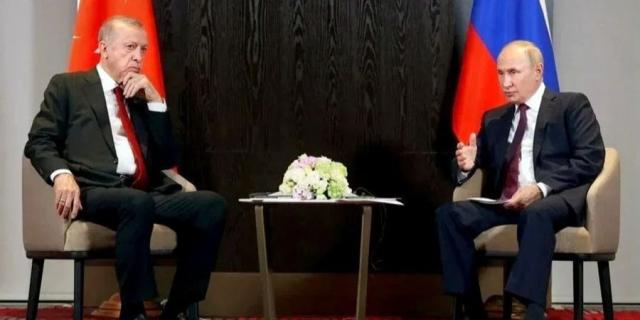
A Libyan court sentences 3 people to prison terms over human trafficking
A court in the Libyan capital sentenced three people to harsh prison terms on charges of human trafficking, in a first such ruling in a North African nation where migrants are routinely mistreated. The Criminal Court of Tripoli convicted the three of human trafficking, detaining, and torturing migrants, and extorting their families to pay ransom to release their relatives, according to a statement Friday by the office of Libya’s chief processor. Libya plunged into chaos following a NATO-backed uprising that toppled and killed longtime autocrat Moammar Gadhafi in 2011.
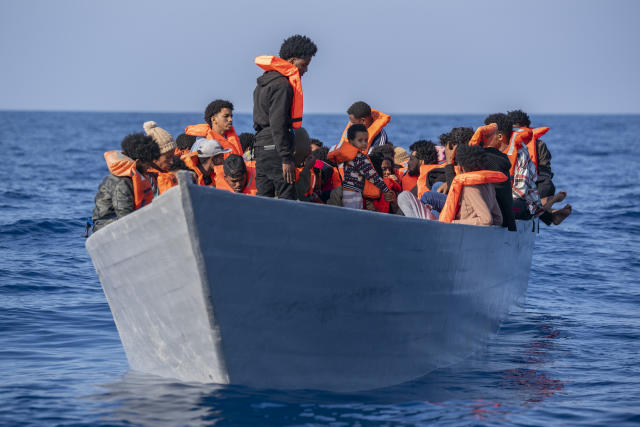
The Criminal Court of Tripoli convicted the three of human trafficking, detaining, and torturing migrants, and extorting their families to pay ransom to release their relatives, according to a statement Friday by the office of Libya’s chief processor.
The court sentenced one of the convicted to life in prison, while the other two received a 20-year term each, the statement said.
The statement didn’t reveal further details including their identities or nationalities. General Prosecutor al-Sediq al-Sourr was not immediately available for comment on Saturday.
Libya plunged into chaos following a NATO-backed uprising that toppled and killed longtime autocrat Moammar Gadhafi in 2011. The country has since emerged as the dominant transit point for migrants seeking a better life in Europe.
For years, the United Nations and rights groups have decried horrible conditions faced by migrants who were trafficked and smuggled across the Mediterranean.
U.N.-backed human rights experts said in March there was evidence that crimes against humanity have been committed against Libyans and migrants in in Libya, including women being forced into sexual slavery.
Sudan conflict: Air strike kills at least 22 in Khartoum
Hundreds have died and millions have been forced from their homes since fighting began in April.
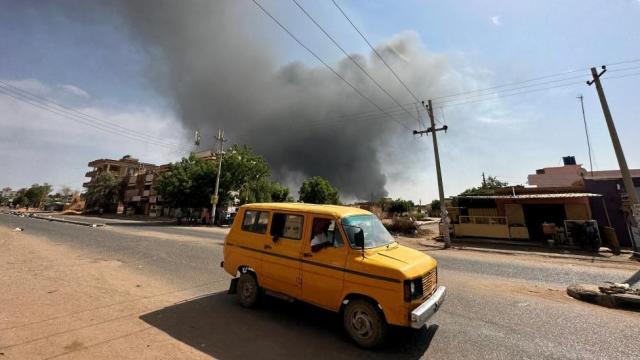
A Sudanese army air strike on the capital has killed at least 22 people and injured many others, eyewitnesses and an official have said.
Women and children were among the victims, the eyewitnesses told the BBC.
The airstrike hit the Dar es Salaam district of Omdurman, on the opposite bank of the Nile to the capital Khartoum, early on Saturday.
The army and a paramilitary force have been battling for control of the capital since April.
The conflict began after the head of the army, Gen Abdel Fattah al-Burhan, and the head of the Rapid Support Forces (RSF), Gen Mohamed Hamdan Dagalo, fell out over the future of the country.
A Khartoum state health official, quoted by Reuters news agency, said at least 22 people had been killed in Saturday's airstrike, while the RSF said the death toll was 31.
The paramilitary group added in a statement that the strike had "caused significant destruction to homes".
The RSF controls much of Khartoum and its twin cities of Omdurman and Bahri. The army has carried out frequent artillery and air attacks to try and dislodge the paramilitary fighters. But it is thought that Saturday's strike could have resulted in one of the largest death tolls from a single attack.
Twelve weeks of conflict have left the civilian population in the capital terrified. Shops and markets are rarely open and almost all medical facilities have shut down.
Clashes have spread beyond the city, including to the western Darfur region which has seen an outbreak of ethnic violence.
Across the country, hundreds have been killed and almost three million people have been forced from their homes.
There have been partially-successful attempts to secure temporary ceasefires, but these have never lasted long.
East African regional bloc Igad is trying to re-start peace talks at a summit in Ethiopia on Monday.
But a spokesman for Gen Burhan said he would not attend the meeting.
Amazon tech guru: Eating less beef, more fish good for the planet, and AI helps us get there
Amazon's top technology leader told a United Nations conference this week that AI can be used to help people save the environment by eating more fish and less beef.

In his remarks to the conference on July 6, Vogels showed a graphic that said it takes seven times more feed to produce a given amount of protein from a cattle farm compared to a fish farm. He said that means people need to move away from eating beef.
"We need to shift the protein," Vogels said. "And we know… how damaging cattle farming is, not just because of the amount of food that it needs, but the impact on the environment that it has."
"If we want to reduce that impact, we will need to move to consuming fish as our main source of protein," he said.
To shift that dramatically to fish, more efficient fish farms are needed. Today, he said, fish farms are plagued by disease that can spread too quickly to every fish in the same pen.
However, he said AI is already helping to solve that problem. Vogels said companies like Aquabyte are using AI and machine learning to gather data on fish in order to quickly detect the presence of disease and other problems that hurt yield.
"Their mission is to improve fish farming techniques," he said. "They build this very unique camera… to identify the individual fish, to identify their growth, to identify potential diseases."
Vogels added that farmed fish is a necessary step because fishing from the ocean has also proved to be bad for the environment.
"This is an extremely damaging industry," he said at the U.N. meeting. "Greenpeace reports that fishing nets account for about 86% of the large plastic waste, which is caught in the ‘great Pacific garbage patch,’ which is sitting in the Pacific Ocean which is three times the size of France."
"It’s extremely damaging – current fishing approaches – to the environment," he said. "So fish farming is a much better-controlled environment to grow fish."
The U.N. conference ran from July 6-7 and featured top U.N. officials and industry leaders. On July 6, U.N. Secretary-General Antonio Guterres told the audience that while AI has the potential for "enormous good," even though it also poses possible dangers, "from the development and use of autonomous lethal weapons, to turbo-charging mis- and dis-information that has undermined democracy."
Russia seeks UN Security Council meeting on Nord Stream blasts
Russia has requested a new meeting of the U.N. Security Council for July 11 to discuss last September's explosions on the Nord Stream gas pipelines, a senior Russian diplomat at the United Nations said on Saturday. Russia has unsuccessfully demanded access to investigations by Sweden and other countries into the blasts, which severely damaged the pipelines connecting Russia and Germany under the Baltic Sea. "We requested a new open meeting of the U.N. Security Council on the Nord Stream blasts f

MOSCOW (Reuters) - Russia has requested a new meeting of the U.N. Security Council for July 11 to discuss last September's explosions on the Nord Stream gas pipelines, a senior Russian diplomat at the United Nations said on Saturday.
Russia has unsuccessfully demanded access to investigations by Sweden and other countries into the blasts, which severely damaged the pipelines connecting Russia and Germany under the Baltic Sea.
"We requested a new open meeting of the U.N. Security Council on the Nord Stream blasts for July 11," Dmitry Polyansky, Russia's deputy U.N. ambassador, said on the Telegram messaging platform.
He also said Russia would invite "a couple of interesting impartial speakers" to the meeting.
Russia failed in March to get the U.N. Security Council to ask for an independent inquiry.
Moscow has said the West was behind the blasts. Western governments have denied involvement, as has Ukraine, which is fighting Russian forces on its territory.
The pipeline blasts occurred in the exclusive economic zones of Sweden and Denmark. Sweden, Denmark and Germany have said that their own separate investigations were still active and Russia had been informed.
(Reporting by Vladimir Soldatkin; Editing by Gareth Jones)
South Koreans protest the planned release of Fukushima wastewater during a visit by the head of IAEA
Hundreds of people marched in South Korea’s capital on Saturday demanding Japan scrap its plans to release treated wastewater from the damaged Fukushima nuclear power plant, as the head of the U.N. nuclear agency met with senior officials to discuss public concerns over foods safety. The protests came a day after South Korea’s government formally endorsed the safety of the Japanese plans, saying that the contamination levels of water pumped out from the plant would be within acceptable standards
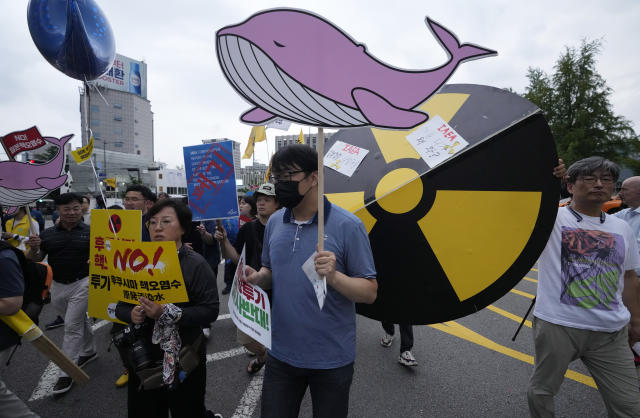
SEOUL, South Korea (AP) — Hundreds of people marched in South Korea’s capital on Saturday demanding Japan scrap its plans to release treated wastewater from the damaged Fukushima nuclear power plant, as the head of the U.N. nuclear agency met with senior officials to discuss public concerns over foods safety.
The announcement aligned with the views of the International Atomic Energy Agency, which greenlit the Japanese discharge plans this week, saying the treated wastewater would meet international safety standards and pose negligible environmental and health impacts.
Braving blistering summer heat and closely watched by police, the protesters walked in long lines through a commercial district in downtown Seoul, holding signs reading “We denounce the sea disposal of Fukushima’s nuclear wastewater!” and “We oppose with our lives the sea discharge.” The marches proceeded peacefully and there were no immediate reports of major clashes or injuries.
“Other than discharging the water into the sea, there is an option to store the water on their land, and there are other options being suggested," said Han Sang-jin, spokesperson of the Korean Confederation of Trade Unions, whose members accounted for many of the marchers.
He said that allowing Japan to discharge the water "is like an international crime.”
The protests provided a tense backdrop to a meeting between IAEA Director General Rafael Mariano Grossi and South Korean Foreign Minister Park Jin to discuss the IAEA's assessment of the Japanese discharge plans. Park during the meeting called for the IAEA’s “active cooperation” in verifying the safety of the released wastewater more clearly and reassuring the South Korean public, his ministry said.
Speaking to reporters in Tokyo on Friday before his flight to South Korea, Grossi said he was willing to engage critics, including South Korean opposition politicians, to reduce concerns.
Hours later, he was greeted by dozens of angry protesters at an airport near Seoul. They denounced IAEA’s support of the discharge plans, holding signs reading “Dismantle IAEA!” and “Fukushima wastewater will definitely lead all humanity to disaster!”
Grossi on Sunday was expected to meet with lawmakers from the opposition Democratic Party, which has harshly criticized the Japanese discharge plans and accused the conservative government of South Korean President Yoon Suk Yeol of putting people's health at risk while desperately trying to improve relations with Tokyo.
South Korea’s assessment about the safety of the discharge plan was partially based on observations by a team of government scientists who were allowed to tour the Fukushima plant in May.
A massive earthquake and tsunami in 2011 destroyed the Fukushima plant’s cooling systems, causing three reactors to melt and release large amounts of radiation.
Tokyo Electric Power Company Holdings, which operates the facility, has been storing the treated water in hundreds of tanks that now cover most of the plant and are nearly full. Japanese officials say the tanks must be removed to make room to build facilities for the plant’s decommissioning and to minimize the risk of leaks in case of another major disaster. The tanks are expected to reach their capacity of 1.37 million tons in early 2024.
Japan first announced plans to discharge the treated water into the sea in 2018, saying that the water will be further diluted by seawater before being released in a carefully controlled process that will take decades to complete.
___
Associated Press video journalist Yong Jun Chang contributed to this report.
Erdogan confirms Putin's August visit to Turkey
Russian dictator Vladimir Putin is scheduled to visit Turkey in August, Turkish President Recep Tayyip Erdogan said on July 7.
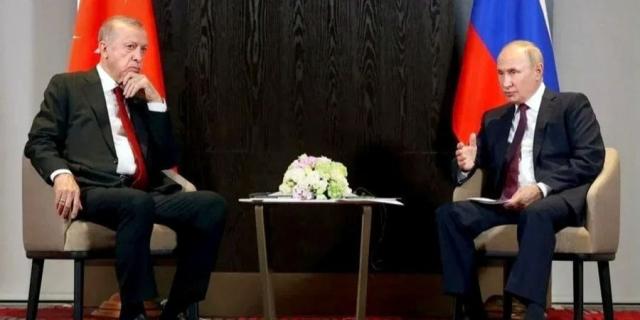
According to Erdogan, among the topics he plans to discuss with Putin are Russian aggression against Ukraine, the exchange of prisoners between Kyiv and Moscow, and the so-called "grain deal," which he wants to extend for at least two more years.
“We will have the opportunity to discuss this issue again face-to-face... This is one of the most important items on our agenda, both in phone diplomacy and during the personal meeting that will take place next month.”
Read also:
0 Likes
